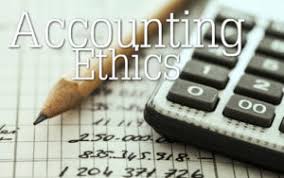
Accounting Ethics Case Essay
“Firestone and the Warlord”
Ethics Case Study
On August 3rd, 1900, Harvey Firestone founded the Firestone Tire and Rubber Company (“Firestone”) in Akron, Ohio. Known primarily for its eponymous tires, Firestone, from 1900 through the 1970’s, became one of the largest and most successful manufacturing companies in the United States. Facilitated by the personal friendship between Harvey Firestone and Henry Ford, the Firestone company sold millions of automotive tires to the Ford Motor Company, and the other great American car companies, throughout the 20th century.
In 1926, to source raw materials for its tires, Firestone created the largest rubber plantation in the world in the West African country of Liberia. Firestone worked closely with the Liberian government at the time of the establishment of the operation in 1926, and this successful and effective working relationship continued for the next 63 years.
In 1990, Charles Taylor founded the National Patriotic Front of Liberia (“NPFL”) and initiated a civil war against the incumbent government and president, Samuel Doe. At this time, the NPFL succeeded in overthrowing President Doe and taking control of all of Liberia, except for the capital city of Monrovia. Taylor and the NPFL seized and took control of the Firestone rubber plantation (known as the Harbel Plantation). As the rebels closed in on the plantation, the American expatriate employees (the managers of the operation) boarded a plane and left Liberia, leaving the native Liberian Firestone employees, and hundreds of millions of dollars of industrial investment, behind.
For your assignment you will need to:
(1) Watch the documentary “Firestone and the Warlord” produced by PBS Frontline at:
https://www.pbs.org/wgbh/frontline/film/firestone-and-the-warlord/
(Length of approximately 1 hour 24 minutes)
It is important to note that this documentary depicts some violent and gruesome scenes. If it would be difficult for you to view such scenes, there are alternatives available:
o When you click on the link you will notice there is a tab that says “Audio Track”. This will allow you to listen to the documentary.
o A transcript of the documentary is also available if you prefer to read the information. https://www.pbs.org/wgbh/frontline/film/firestone-and-the-warlord/transcript/
(2) Read the Firestone response to the documentary available at the PBS Frontline website:
https://www.pbs.org/wgbh/frontline/article/firestone-responds/
There is no need to do additional research for this assignment (other than what is set out above), but you may do so if, in your judgment, it would be helpful. After viewing the materials above, write your paper arguing the following:
Part I: Explain how Firestone acted unethically in its dealings with Charles Taylor and the NPFL in the 1990’s. In answering this question, make sure to identify, and fully discuss, the ethical theory, or theories, that you think apply to this situation.
Part II: Explain how Firestone acted ethically in its dealings with Charles Taylor and the NPFL in the 1990’s. Again please support your answer by using any ethical theory, or theories, we have discussed in class.
Your paper should address the issues raised in the questions below, as well as any other pertinent issues or points that occur to you. You must cite all authority used in your response..
Questions to consider when making your arguments above:
(a) In 1990, should Firestone have recognized Charles Taylor and the NPFL as the sovereign government of Liberia?
(b) Once Firestone decided to go back into Liberia (after signing a Memorandum of Understanding [“MOU”] with, at that point, President Taylor and the NPFL) did Firestone have any choice other than to pay the taxes it agreed to pay to the NPFL government?
(c) The shareholders of a company are generally considered the company’s primary stakeholders; however, it also generally agreed among scholarly, legal and governmental experts that employees, customers, the residents and governments where the company operates (along with the environment itself in the company’s locus/loci of operation(s)) are all stakeholders as well. What ethical obligations did Firestone owe to its stakeholders in the early 1990’s in Liberia?
(d) Related to question (c) above, Firestone argues one of the reasons it came back to Liberia was for its employees. However, Firestone management left their employees twice during this time. What do you think was Firestone’s motivation for returning, and were there any ethical responsibilities involved?
(e) At this time (in the 1990’s in Liberia), did Firestone need Charles Taylor and the NPFL more than Charles Taylor and the NPFL needed Firestone?
(f) Related to question (e) above, what bargaining power did Firestone have in its discussions/negotiations with Charles Taylor and the NPFL?
Format
• Length of paper: 1,000 words (approximately two single-spaced pages)
• Times New Roman, size 12 font, one and a half-spaced, 1” page margins
• Notes should be placed at the end of the paper (endnotes). Any recognized citation format is acceptable.
Grading Rubric
Criteria Points
Statement and application of ethical principles, theories and issues 30
Quality of arguments made 25
Persuasiveness of the arguments 25
Writing quality (grammar, clarity, active voice, editing/proof-reading, etc.) 20
Total Points 100
We can write this or a similar paper for you! Simply fill the order form!




